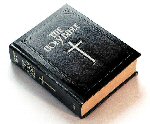
(Isaiah 11:2-3a, Douay-Rheims Bible 1582) 3
by Messrs. John Fok and Alex Kwok
Supervisor: Fr. Marciano Baptista S.J.
April 14, 2006
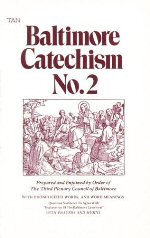 For those of us who were brought up by the Baltimore Catechism (1891) 1, life consists of a set of model answers:
For those of us who were brought up by the Baltimore Catechism (1891) 1, life consists of a set of model answers: | "And the spirit of the Lord shall rest upon him: the spirit of wisdom, and of understanding, the spirit of counsel, and of fortitude, the spirit of knowledge, and of godliness. And he shall be filled with the spirit of the fear of the Lord …" (Isaiah 11:2-3a, Douay-Rheims Bible 1582) 3 |
| "And the spirit of the LORD shall rest upon him, the spirit of wisdom and understanding, the spirit of counsel and might, the spirit of knowledge and of the fear of the LORD. And shall make him of quick understanding in the fear of the LORD…" (KJV 1611) 4 |  |
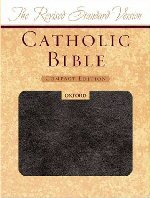 | "And the Spirit of the LORD shall rest upon him, the spirit of wisdom and understanding, the spirit of counsel and might, the spirit of knowledge and the fear of the LORD. And his delight shall be in the fear of the LORD…" (RSV 1952) 5 |
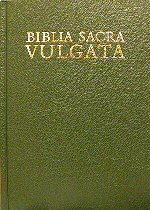 | "et requiescet super eum spiritus Domini: spiritus sapientiae et intellectus, spiritus consilii et fortitudinis, spiritus scientiae et pietatis, et replebit eum spiritus timoris Domini…" (Vulgate 405)6 |
| "et requiescet super eum spiritus Domini: spiritus sapientiae et intellectus, spiritus consilii et fortitudinis, spiritus scientiae et timoris Domini; et deliciae eius in timore Domini…" (Nova Vulgata 1979) 7 |
| "καὶ ἀναπαύσεται ἐπ' αὐτὸν πνεῦμα τοῦ ϑεοῦ, πνεῦμα σοϕίας καὶ συνέσεως, πνεῦμα βουλῆς καὶ ἰσχύος, πνεῦμα γ νώσεως καὶ εὐσεβείας· ἐμπλήσει αὐτὸν πνεῦμα ϕόβου ϑεοῦ…" (TITUS Texts)8 | 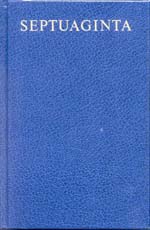 |
| καὶ | ἀναπαύσεται | ἐπ' | αὐτὸν | πνεῦμα | τοῦ ϑεοῦ |
| And | will be caused to rest | upon | him | spirit | of God |
| πνεῦμα | σοϕίας | καὶ | συνέσεως | πνεῦμα | βουλῆς |
| a spirit | of wisdom | and | understanding | a spirit | of counsel |
| καὶ | ἰσχύος | πνεῦμα | γνώσεως | καὶ | εὐσεβείας· |
| and | strength | a spirit | of knowledge | and | piety |
| ἐμπλήσει αὐτὸν | πνεῦμα | ϕόβου ϑεοῦ | |||
| shall fill him up | a spirit | of the fear of God 9 | |||
|
וְנָחָה עָלָיו רוּחַ יְהוָה רוּחַ חָכְמָה וּבִינָה רוּחַ עֵצָה וּגְבוּרָה רוּחַ דַּעַת וְיִרְאַת יְהוָה 11 וַהֲרִיחוֹ בְּיִרְאַת יְהוָ |  |
| יְהוָה | רוּחַ | עָלָיו | וְנָחָה |
| the Lord | the spirit (of) | on him | and shall rest |
| וּבִינָה | חָכְמָה | רוּחַ | |
| and intellect | wisdom | the spirit (of) | |
| וּגְבוּרָה | עֵצָה | רוּחַ | |
| and fortitude | counsel | the spirit (of) | |
| יְהוָה | וְיִרְאַת | דַּעַת | רוּחַ |
| the Lord | and fear (of) | knowledge | the spirit (of) |
| יְהוָה | בְּיִרְאַת | וַהֲרִיחוֹ | |
| the Lord | in the fear (of) | make him delight |
| And the spirit of the Lord shall rest upon him: the spirit of wisdom, and of understanding, the spirit of counsel, and of fortitude, the spirit of knowledge, and of godliness. And he shall be filled with the spirit of the fear of the Lord … (Rouay-Rheims) |
| et requiescet super eum spiritus Domini: spiritus sapientiae et intellectus, spiritus consilii et fortitudinis, spiritus scientiae et pietatis, et replebit eum spiritus timoris Domini… (Vulgate) |
| καὶ ἀναπαύσεται ἐπ' αὐτὸν πνεῦμα τοῦ ϑεοῦ, πνεῦμα σοϕίας καὶ συνέσεως, πνεῦμα βουλῆς καὶ ἰσχύος, πνεῦμα γνώσεως καὶ εὐσεβείας· ἐμπλήσει αὐτὸν πνεῦμα ϕόβου ϑεοῦ… (Septuagint) |
| And the spirit of the LORD shall rest upon him, the spirit of wisdom and understanding, the spirit of counsel and might, the spirit of knowledge and of the fear of the LORD. And shall make him of quick understanding in the fear of the LORD … (King James Version) |
| And the Spirit of the LORD shall rest upon him, the spirit of wisdom and understanding, the spirit of counsel and might, the spirit of knowledge and the fear of the LORD. And his delight shall be in the fear of the LORD… (Revised Standard Version) |
| et requiescet super eum spiritus Domini: spiritus sapientiae et intellectus, spiritus consilii et fortitudinis, spiritus scientiae et timoris Domini; et deliciae eius in timore Domini… (Nova Vulgata) |
|
וְנָחָה עָלָיו רוּחַ יְהוָה רוּחַ חָכְמָה וּבִינָה רוּחַ עֵצָה וּגְבוּרָה רוּחַ דַּעַת וְיִרְאַת יְהוָה וַהֲרִיחוֹ בְּיִרְאַת יְהוָ (Masoretic Text) |
15 יִרְאַת יְהוָה רֵאשִׁית דָּעַת חָכְמָה וּמוּסָר אֱוִילִים בָּזוּ
However, the Septuagint rendered a longer, richer translation:|
᾽Αρχὴ σοϕίας ϕόβος ϑεοῦ, σύνεσις δὲ ἀγαϑὴ πᾶσι τοῖς ποιοῦσιν αὐτήν· εὐσέβεια δὲ εἰς ϑεὸν ἀρχὴ αἰσϑήσεως, σοϕίαν δὲ καὶ παιδείαν ἀσεβεῖς ἐξουϑενήσουσιν. "The beginning of wisdom is the fear of God, understanding and good to all, the ones observing it; and piety to God is the beginning of perception; but wisdom and instruction, the impious will treat with contempt." (Interlinear-Septuagint) 16 |
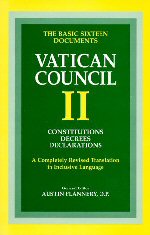 Justin Martyr and St. Augustine spent quite a bit of time theorizing and writing about how these 'seven gifts' work in the soul of the recipient. But it was St. Thomas Aquinas who developed the most complete theology surrounding the 'seven gifts'. He saw them as qualitatively different and superior to the moral and theological virtues . He also regarded the Holy Spirit, not the human person, as the actuator of these gifts in each individual.
Justin Martyr and St. Augustine spent quite a bit of time theorizing and writing about how these 'seven gifts' work in the soul of the recipient. But it was St. Thomas Aquinas who developed the most complete theology surrounding the 'seven gifts'. He saw them as qualitatively different and superior to the moral and theological virtues . He also regarded the Holy Spirit, not the human person, as the actuator of these gifts in each individual.